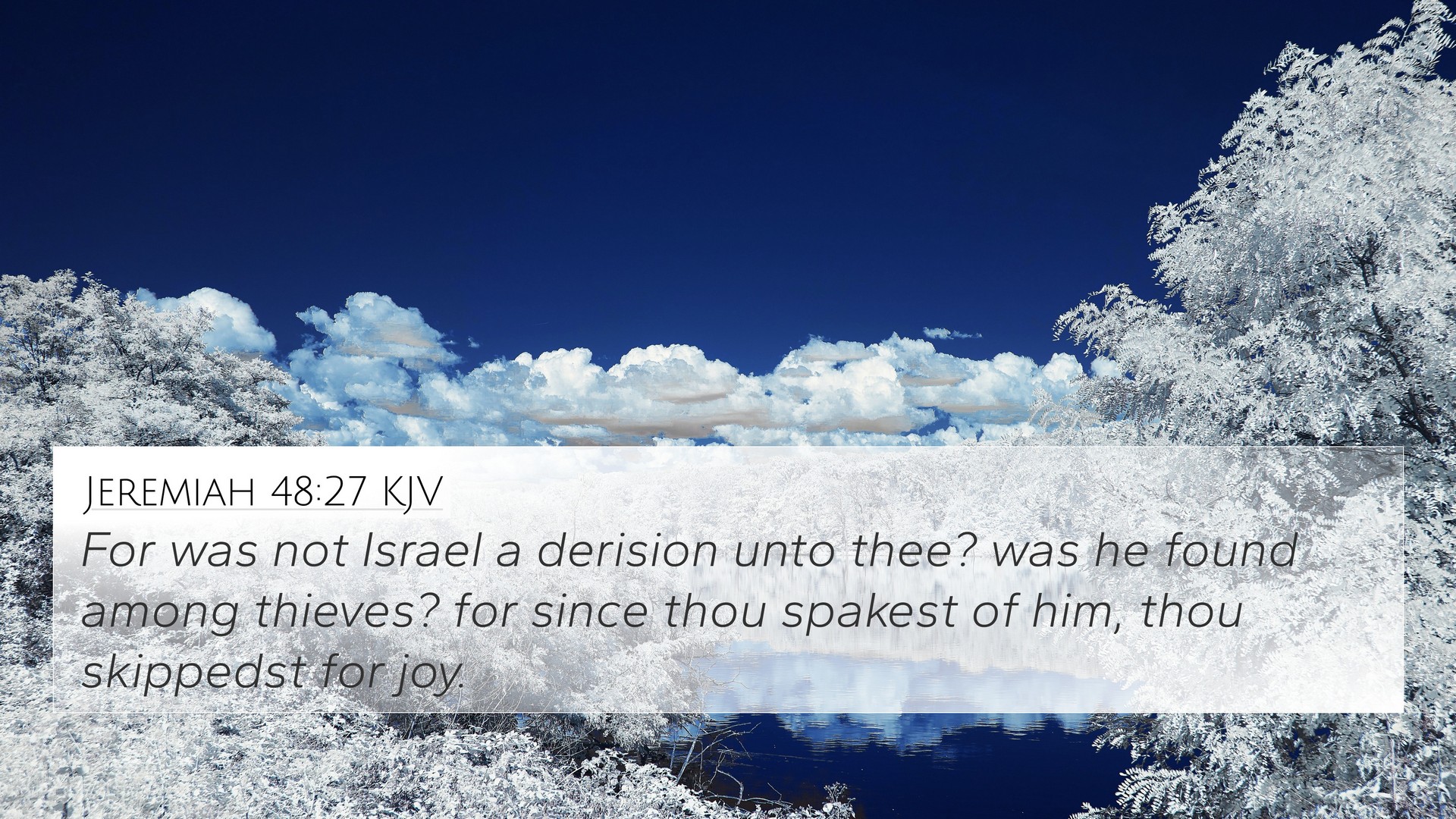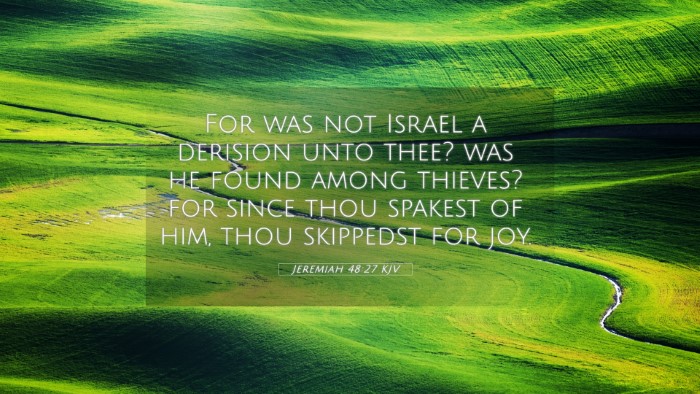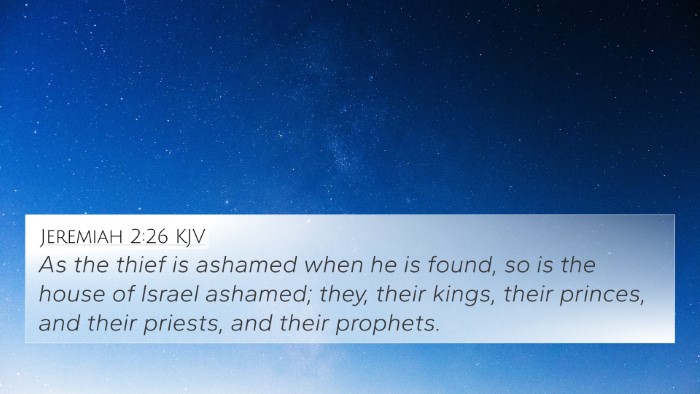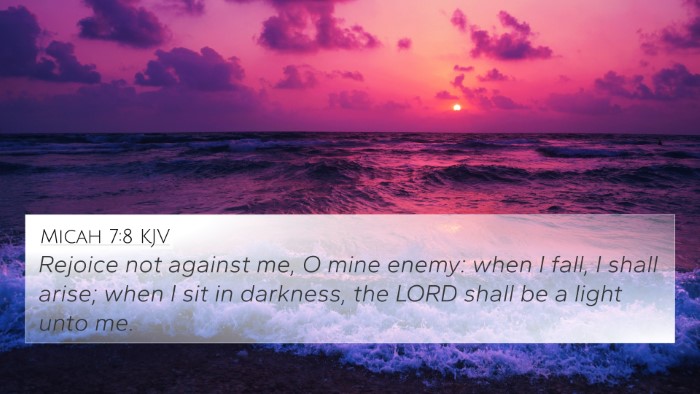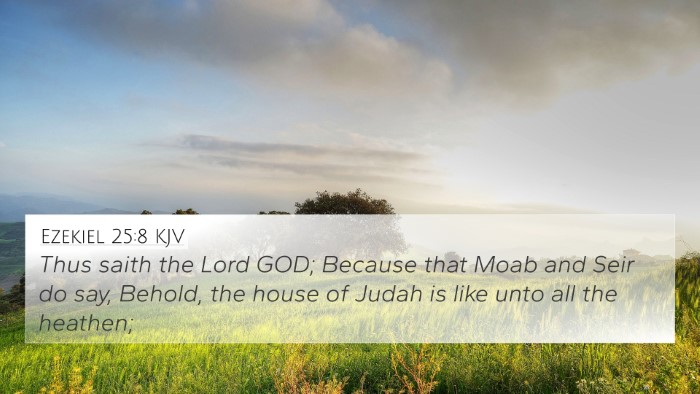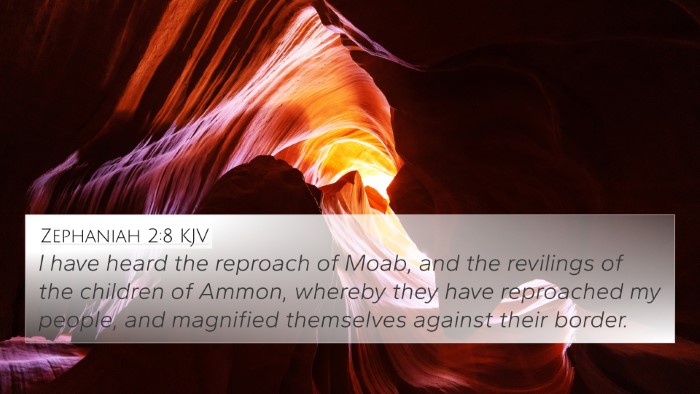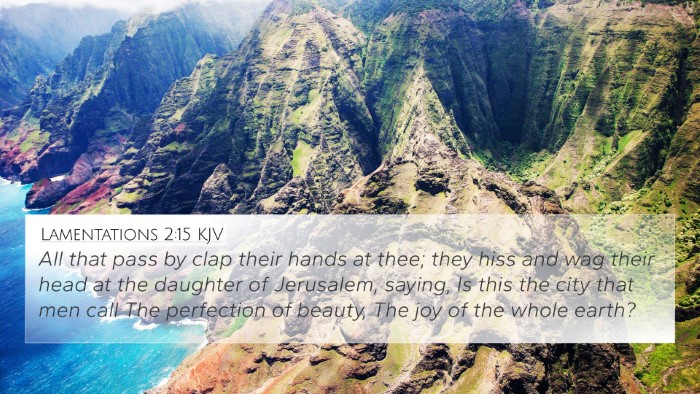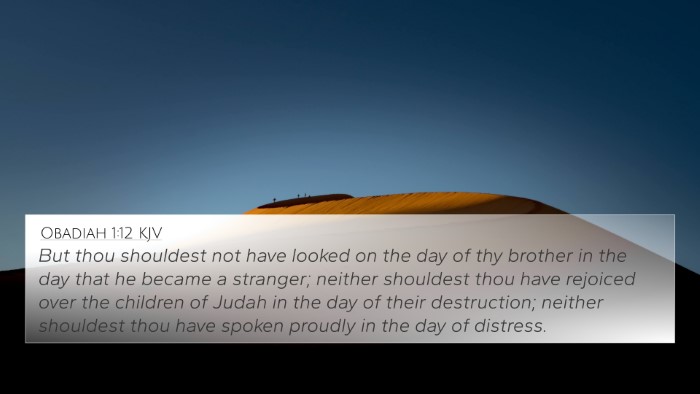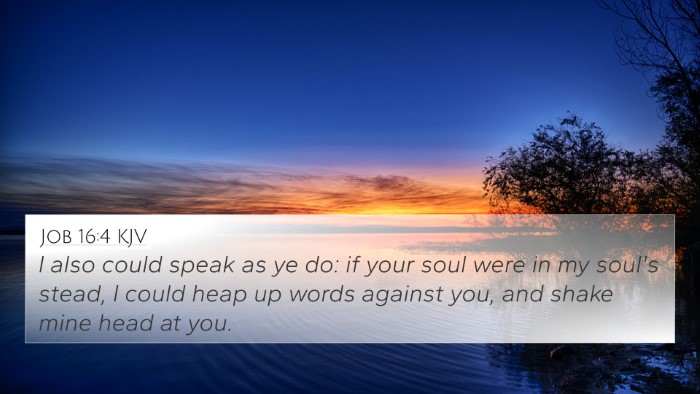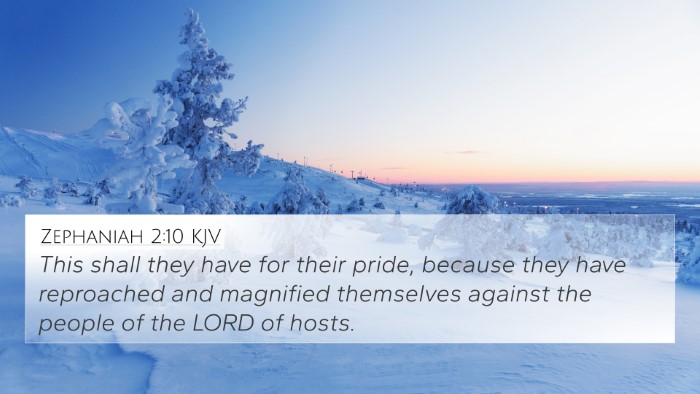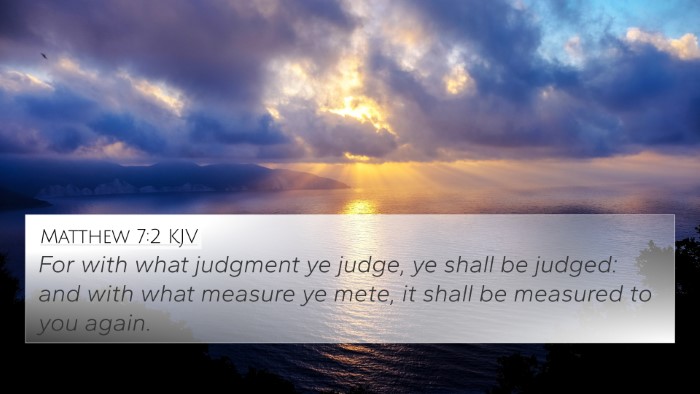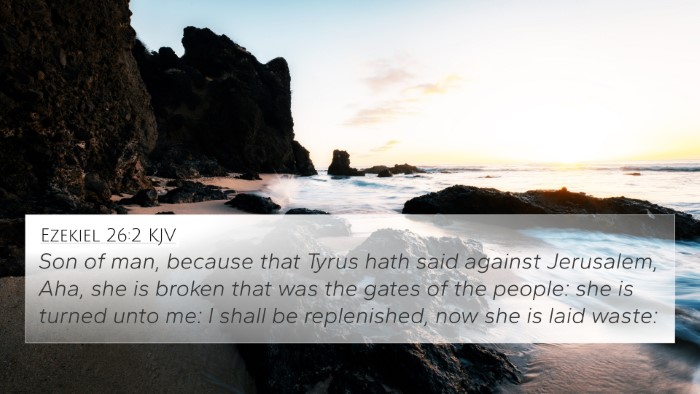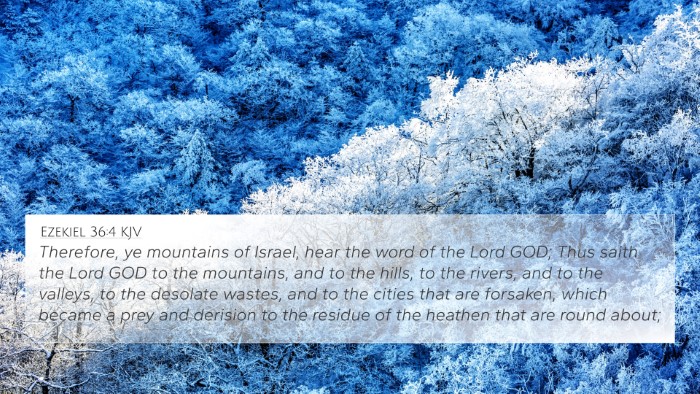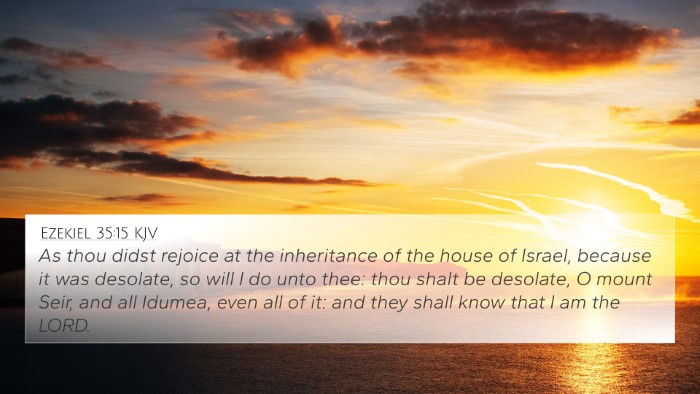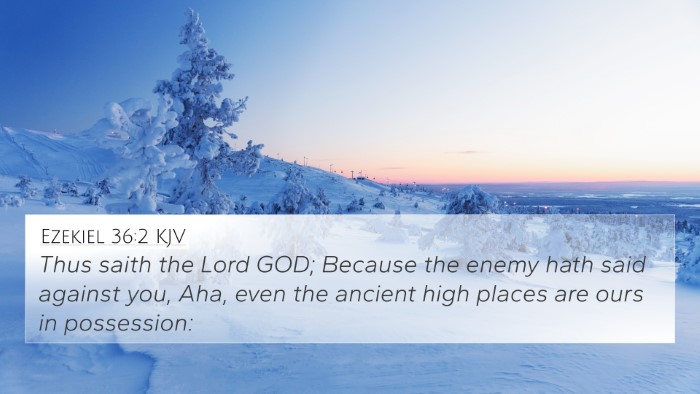Understanding Jeremiah 48:27
Jeremiah 48:27 reads: "For was not Israel a derision unto thee? Was he found among thieves? For since thou spakest of him, thou skippedst for joy." This verse addresses the derision that the people of Moab felt towards Israel and serves as a reflection on the relationship between these two nations. Below is a summarization of the interpretations provided by notable public domain commentators.
Summary of Commentary Insights
Matthew Henry's Commentary
Matthew Henry emphasizes that the Moabites' scorn for Israel reveals a deeper spiritual and national enmity. He points out how the Moabites reveled in Israel's troubles, indicating a lack of compassion and a prideful attitude towards their defeat. Henry suggests that such derision ultimately leads to divine retribution.
Albert Barnes' Notes on the Bible
Albert Barnes interprets this verse by highlighting the irony of Moab's derision, explaining that Israel's previous vulnerability was juxtaposed with their eventual strength. He warns that rejoicing over another's misfortunes is a precarious stance, as it may invite judgment upon oneself. The mention of "thieves" alludes to the deceptive nature of their confidence.
Adam Clarke's Commentary
Adam Clarke adds to this analysis by discussing the cultural context, noting that the Moabites, in their mockery, reflect a broader disdain for Israel. Clarke also reviews how this verse connects to other prophetic warnings against Moab, illustrating a cycle of revenge and humiliation between nations.
Cross-Referencing Biblical Texts
This verse can be linked to various other scripture references, providing a multi-faceted understanding of its themes:
- Isaiah 16:6-7: Discusses Moab's pride and its consequences.
- Jeremiah 48:2: Illustrates the punishment of Moab and its fall from grace.
- Ezekiel 25:8-11: Reflects God's judgment upon Moab for their actions against Israel.
- Psalm 137:7: Displays the desire for retribution felt by Israel against their captors.
- Micah 5:6: Discusses the destruction of the land of Moab as a prophetic directive.
- Obadiah 1:3: Warns of pride leading to downfall, applicable to both Moab and Israel.
- Philippians 4:10: Speaks on the sentiments of joy and derision within a spiritual context.
Exploring Biblical Connections
These references encourage a comparative Bible verse analysis, inviting readers to consider the complex interrelationships throughout scripture. Tools for Bible cross-referencing can greatly enhance understanding, guiding users to see thematic ties and historical contexts richer than isolated readings. Through studying these connections, the inter-Biblical dialogue becomes evident, revealing God's consistent messages across both the Old and New Testaments.
Thematic Bible Verse Connections
This verse offers a broader discussion on themes of derision, divine judgment, and national pride. When exploring these themes, it’s valuable to use a Bible concordance or a cross-reference Bible study guide to navigate similar scripture:
- Proverbs 16:18: "Pride goes before destruction, and a haughty spirit before a fall."
- Obadiah 1:15: Describes the day of the Lord against nations and their fallen spirits.
- James 4:10: "Humble yourselves before the Lord, and he will lift you up."
Conclusion: A Call for Reflection
The insights gathered from Jeremiah 48:27 through public domain commentaries challenge readers to reflect on their attitudes towards others and to heed the spiritual ramifications of pride and derision. This verse is not only a testament to Israel's trials but also a sober reminder of the necessity for humility and compassion in the face of others' struggles.
